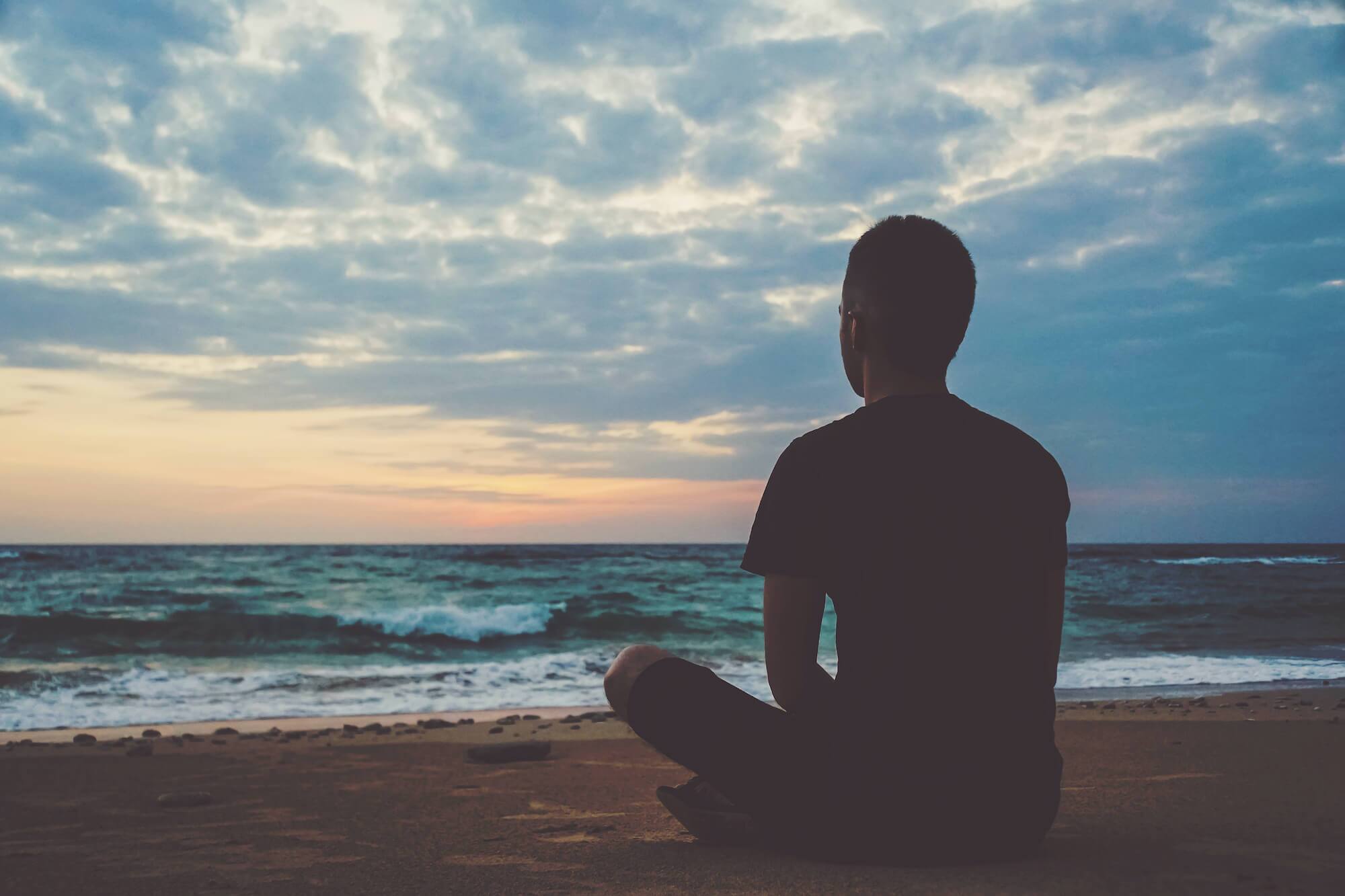Life
What is Congruence in Psychology?
Am I living in a way which is deeply satisfying to me, and which truly expresses me?” — Carl Rogers
For Carl Rogers, humanistic psychologist and founder of unconditional counseling, we all want to use 100 percent of our potentials, living a life of meaningful change.
Congruence is when our self-picture (who we think we are) mirrors our actions. It’s when our ideal self and ideal future aligns with or closely resembles, our self-image and actual experiences. It’s also when our actions resemble our stated ideologies and goals.
Unfortunately, most people are, in the words of famous Scottish psychiatrist R.D Laing, divided selves. Their self-images are either very different from their real selves, or they live in a fantasy world, where their experiences contradict their stated existence. That’s when many such people resort to defense mechanisms, like denial or repression, to smother their uncomfortable feelings.
In contrast, congruent individuals are authentic. Since their self-image overlaps with their ideal-image, such persons are more likely to progress to their goals and self-actualize.
Table of Contents
What’s an Authentic Person?
It is well said that “He who knows others is wise. He who knows himself is enlightened”– Lao Tzu.
According to Carl Rogers, congruence is largely achieved through self-knowledge. But, what is self-knowledge? Is it knowledge of the self? And more importantly, what is the self?
Psychologists tell us our selves are formed by how others appraise us and on our social situations:
- Am I rich or poor?
- Beautiful or ugly?
- Smart or not?
- Good or bad at playing video games?
- Am I a good dad?
- Am I a good friend?

“He who knows others is wise. He who knows himself is enlightened”– Lao Tzu.
Share on facebook
Share on twitter
Share on linkedin
The answer comes by comparing ourselves to others. So, given that the “self” is invisible, how do you get to know your “self” to become authentic? First, you have to determine how you are inauthentic.
How Am I Inauthentic?
The best way to answer that question is by turning it upside down. How can I be inauthentic, or not myself?
Look to those you do not admire like despots and authoritarians. Study their behavior. See what it is that makes you dislike them then ask yourself, am I capable of that? Chances are, you are not. However, these horrible people are sometimes considered authentic because they voice their opinions – most of which are hurtful and violent – and stand by them.
How many times have we heard, “Oh, he’s just being himself.” Or, “It’s just locker room talk.” Yes, these people may be confident in their speech and stick to their beliefs, but society labeling them as authentic is damaging. Instead, we need to start labeling these dictators as inauthentic.
The Colors We Portray
Around 10 years ago, Mpho Tutu, the daughter of South Africa’s famous human rights activist and Nobel Peace Prize winner Desmond Tutu, addressed a Ph.D. graduating class. She spoke of how when she was growing up in the 1980s in apartheid South Africa, her grandmother took her out to her front garden of prized flowers and plants. Pointing to them, she asked her granddaughter whether she had made the right choice to plant that many different colors and types of flowers.
“Maybe one color would have been best?” she mused.
“Why, Grandmother, that would have been boring!”
“Child,” Mpho’s grandmother told her. “That’s why we need different color humans, too. God painted us differently. It would be a boring world if we all looked the same.”
The world, or our cultural, social, or religious groups, may pressure us to conform like sheets of photocopied paper. You have people on Instagram who portray themselves in ways they’re not or people who live fantasy lifestyles but that’s not what they really want. In each case, people become divided personalities, making it difficult for them to achieve fulfillment.
How Can I Become Authentic?
That was the drive of historian Yuval Noah Harari’s life. He grew up in Haifa, Israel, to a secular Jewish family, and he writes on a nationalism that starved his need for meaning. Over the years, he spurned one ideology after the next, looking for a purpose in life that made sense.
One day, Yuval reluctantly attended a Vipassana 60-day meditation course that, since then, he’s spent the next 18 years attending. He also spends two hours a day focusing on his breath.
If not for Vipassana, Yuval told Ezra Klein of Vox, he wouldn’t have been able to write his books or live in the moment with conviction and confidence and stay true to himself:

“The entire exercise of Vipassana meditation is to learn the difference between fiction and reality, what is real and what is just stories that we invent and construct in our own minds. Almost 99 percent you realize is just stories in our minds.”
Vipassana helped Yuval act in direct accordance with his dreams, desires, beliefs, values, mission, and goals. Those are the qualities of an authentic, or congruent, person.
Do I have to Practice Vipassana to be Congruent?
Of course not! But, Vipassana involves being in touch with the inhale and exhale of your breath, of sensations in your stomach, in your legs, in your body as a whole. When the breath rises sharply as a result of some emotion, you become overwhelmed. Being in touch with its rise and ebb helps you understand when and why you’re angry or upset (for example). It helps you know yourself, and become more focused.
S.N. Goenka, Yuval’s mentor, says influencing yourself and others starts with observing the surface level of the mind:

“All importance is given to things outside, but it’s only by observing the flux and reflux of the inside that you can know yourself and knead circumstance and your image to reflect your dreams.”
Another approach is in Achan Sobin Namto’s Introduction to Vipassana Meditation, where you’ll practice taking stock of every minute motion of your hands as you waved them to and fro; your steps as you walk from your desk to your chair; your head as you slowly lift it to the ceiling, then drop it to your chin; and so forth.
Not only can those exercises allow you to appreciate your ability to think and move each part of your body, but they also made you more aware of your feelings and ability to pull the breaks between impulse and reaction. That, in a nutshell, is congruence.
Becoming Authentic Through Your Body
According to Yuval Harari, if you really want to master Vipassana, you need to invest in a professional teacher and spend at least two hours a day in meditation, as well as attend an annual two-month silent retreat to focus on your breath.
Since few of us have the time, patience, or money for that, we may welcome the advice of famous Zen master Thich Nhat Hanh, who suggests we simply spend each minute in touch with what goes on in our body by focusing on breath. This is not to say that each waking moment should be spent breathing in and out but, if you take a few minutes daily to touch base with yourself, you’ll be on the right path to congruence.
We can also take a page from Ray Dalio, one of the world’s most successful investors and entrepreneurs. He asked himself, “What is congruence?”, and through his principles of radical truth and radical transparency*, he was able to connect the dots of where we are to where we’re going.
*Essentially, Dalio advises that we break our personal goals into distinct parts and use algorithms to scrutinize each part, to see if the bare-knuckle punches of our picture-reality matches our dream-reality. When we have set up different algorithms for different types of situations, we can carry out decisions more quickly, objectively, and, therefore, more accurately.
If you attach yourself to the truth by being as honest as you can in your dealings with others, you’ll find your self less divided. In turn, the people you’re dealing with may take head and become more open and honest with you leading to mutual respect and understanding.
In practice, this can be achieved through methods that include:
- Applying the SWOT analysis to your strengths, weaknesses, opportunities, threats. (Although designed for business, SWOT can be applied to personal qualities too).
- Using tracking tools, or keeping a daily journal, to monitor what you eat, how often you exercise, how you spend your time, and so forth.
- Taking psychometric tests to objectively assess your intelligence, skills, and personality. Buzzfeed quizzes don’t count. But they are fun!
- Learning data analytics and research tools to scientifically measure your business, personal, or brand results. Gamify your personal goals to see whether you’re achieving them.

Becoming Authentic by Going Inwards to Outwards
We may also gain self-awareness through practicing world-awareness. In other words, by becoming more aware of the world and its various cultures we can reflect on and improve ourselves through that new knowledge.
When looking at the world, ask yourself:
- What can I learn from other cultures?
- How can I absorb what I have learned into improving my (social/ family/ business/ personal) skills?
We can educate ourselves through ways that include:
- Books on diverse subjects
- Travel (or virtual travel because of the pandemic)
- Movies/TV shows from different cultures (hello subtitles!)
- Opening ourselves to new experiences (like new genres of music, foods)
In this way, our ideal selves expand. By practicing what we pick up, our real selves expand likewise. It’s important to remember that when you take new things from different cultures to avoid cultural appropriation.
With all the talk on self-knowledge, there’s one important question left to ask: Is it wise to be authentic and congruent? The answer is yes if you put in the work.

